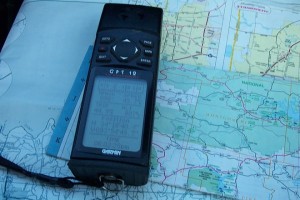 More and more often, judges are ordering defendants to be placed on GPS bracelets as a condition of pre-trial release and/or probation. Despite the fact that the bracelets are often a major help to clients who can avoid incarceration by agreeing to wear them, even the Supreme Judicial Court has recognized (in Commonwealth v. Corey) that the bracelets have a decisively punitive effect. Additionally, the bracelets also may generate unnecessary problems for people doing nothing wrong. Oftentimes, the devices fail through no fault of the defendant, and significant consequences result – including warrants for arrest, the need for repeated and disruptive visits to court, and/or allegations of tampering that may result in additional criminal charges.
More and more often, judges are ordering defendants to be placed on GPS bracelets as a condition of pre-trial release and/or probation. Despite the fact that the bracelets are often a major help to clients who can avoid incarceration by agreeing to wear them, even the Supreme Judicial Court has recognized (in Commonwealth v. Corey) that the bracelets have a decisively punitive effect. Additionally, the bracelets also may generate unnecessary problems for people doing nothing wrong. Oftentimes, the devices fail through no fault of the defendant, and significant consequences result – including warrants for arrest, the need for repeated and disruptive visits to court, and/or allegations of tampering that may result in additional criminal charges.
The bracelets rely on triangulation from three satellites and collect longitude and latitude coordinates, as well as information on the wearer’s speed and direction of travel. They do not measure altitude, meaning that they do not differentiate between floors of a residence. The bracelets then send this collected information to a data center via cellular phone towers.
The information is monitored by the Massachusetts Probation Service’s Electronic Monitoring Program and can be reviewed by a probation officer via an internet connection. In Massachusetts, an “active” tracking feature is used, meaning that information updates can be provided in real time. The vast majority of GPS bracelets are “one-piece” units with a home beacon, which helps to boost the signal within a residence and give a more precise indication of whether the monitored party is at his or her registered home address. These “one-piece” devices have a battery life of 36 hours and can recharge in about two hours. A very small percentage of bracelets (about 5%) are “two-piece” units, which feature a phone and a bracelet, plus a base unit that plugs into a landline connection. These are primarily used in areas with poor cell reception. They have a battery life of 20 hours and require four hours to re-charge.
About 3,000 people are currently subject to electronic monitoring in Massachusetts. It has been reported that of these 3,000 GPS bracelets, there are approximately 1,800 alerts generated per day. In the overwhelming majority of these cases, there is no real problem. However in some of those cases probation determines there is a problem, and 18-20 warrants issue per day on the basis of those alerts. The issuance of 18-20 warrants per day is a troubling statistic and without more information it is impossible to determine if those warrants are justified or perhaps the results of misunderstandings. The logistical challenges posed by GPS bracelets are even more acute for homeless clients, who face a whole host of problems relating to charging and keeping open lines of communication with an independently financed cell phone.
If you or a loved one has been ordered to wear a GPS bracelet as part of your pre-trial conditions of release, or as a condition of probation, you will need to be aware of the problems associated with the technology, and may need the assistance of an attorney in the event that an alert is generated in relation to your bracelet. Oftentimes, probation officers do not credit explanations provided by defendants and are quick to request a warrant or to ask the court to take someone into custody for allegedly tampering with his or her bracelet. If such a situation arises, it is best to be prepared. Attorney Daniel Cappetta is well versed in the problems associated with GPS bracelets and knows how to persuasively present these issues to the court. Call him today for a free consultation.
 Massachusetts Criminal Lawyer Blog
Massachusetts Criminal Lawyer Blog

